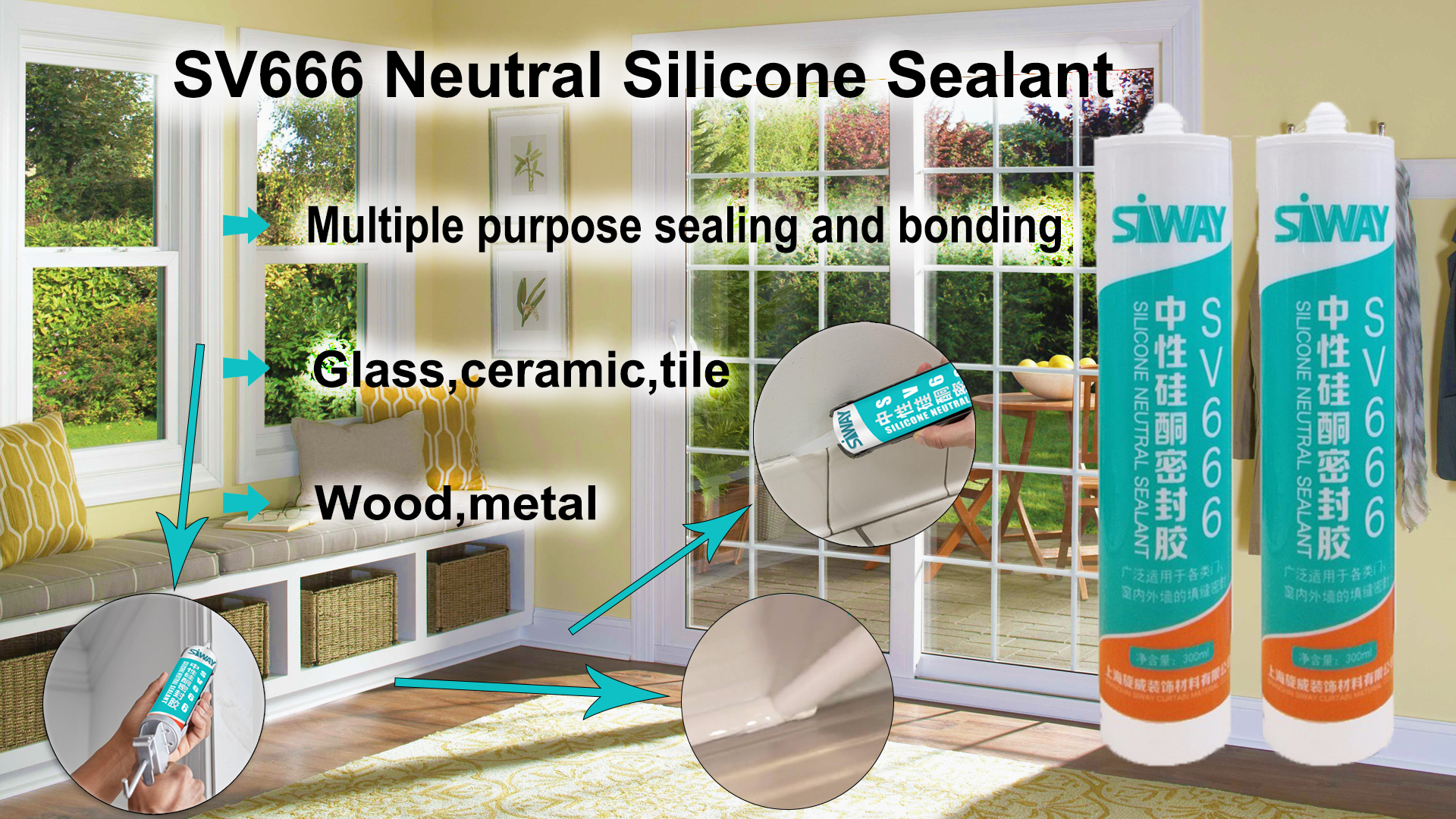Neutral silicone sealants are indispensable in modern construction, offering reliable protection against the elements, enhancing durability, and providing long-term sealing solutions. Whether you are sealing windows, structural joints, or curtain wall systems, selecting the right silicone sealant is essential for the longevity and performance of your project. In this news, we’ll explore the characteristics and ideal uses of various types of silicone sealants, helping you make an informed decision for your construction needs.
Neutral silicone sealants are a type of sealant that cure by releasing alcohol or another non-acidic substance. Unlike an acetoxy silicone, a neutral cure silicone sealant is virtually odor-free. Because it does not release acid while curing, neutral cure silicones are popular choices for sealants for sensitive surfaces.
1. Indoor and Outdoor Neutral Silicone Sealants: Versatile and Reliable for Everyday Sealing
Neutral cure silicone sealants are commonly used for both indoor and outdoor applications due to their excellent adhesion to a wide variety of surfaces, including glass, metal, ceramics, and plastics. These sealants do not release any acidic byproducts during curing, which makes them safe for use on sensitive materials like mirrors and anodized aluminum. For example, when installing glass windows or doorframes in homes or offices, neutral silicone sealants ensure an airtight and watertight seal without damaging the materials.
Neutral silicone sealants are also highly resistant to UV radiation, ensuring that they maintain their flexibility and color over time. Outdoor applications such as sealing around windows, skylights, or door joints benefit from this UV resistance, as the sealant won't degrade under prolonged exposure to sunlight. In addition, these sealants are waterproof, making them ideal for sealing areas exposed to rain or humidity, like bathrooms, kitchens, or outdoor patios.
2. Building Curtain Wall Weather-Resistant Silicone Sealants: Designed for Harsh Environments
Building curtain walls are a popular choice for commercial high-rise buildings, providing a sleek, modern exterior. However, these expansive glass facades are vulnerable to water infiltration and air leaks, which can lead to significant damage and energy loss. Weather-resistant silicone sealants are specifically formulated to meet the rigorous demands of these systems.
These sealants are engineered to handle a range of weather conditions—from intense rain to extreme temperature fluctuations—without losing their elasticity or performance. For instance, a skyscraper in a coastal city might face saltwater corrosion and high winds, but weather-resistant silicone sealants ensure that the building's glass panels stay securely bonded and water-tight, even under these harsh conditions.
An example of where weather-resistant silicone excels is in the installation of large glass windows in commercial buildings, where the sealant helps create a barrier against rain, wind, and UV exposure. The high elasticity of these sealants allows them to accommodate the expansion and contraction of materials without cracking or losing adhesion, ensuring a long-lasting, durable seal that keeps the building envelope secure.
3. Structural Silicone Sealants: High Strength for Load-Bearing Applications
Structural silicone sealants are a crucial component in the construction of glass curtain walls and other load-bearing applications. These sealants are designed to bear mechanical stresses and contribute to the structural integrity of the building, making them essential for projects where both strength and flexibility are required.
For example, in the case of a large glass facade system on a modern office building, structural silicone sealants are used to bond glass panels to the metal framing while also ensuring that the structure is secure and stable. These sealants provide high tensile strength and can withstand heavy loads without failing, which is crucial when the glass panels are not just decorative but also part of the building's load-bearing structure.
A practical application of structural silicone sealants can be seen in iconic architectural projects, such as the glass facades of airport terminals or shopping malls, where the glass panels are subjected to wind loads, seismic activity, and temperature fluctuations. In such cases, the sealant not only acts as a weather barrier but also as a vital part of the overall structural system, ensuring that the building is safe, secure, and able to withstand external forces.
4.Tailoring Sealant Solutions to Your Project Needs
Choosing the right silicone sealant is essential for achieving optimal performance and durability in your construction projects. Whether you need a versatile, all-purpose sealant like neutral silicone, a weather-resistant option for large-scale glass facades, or a high-strength structural silicone for load-bearing systems, each type of sealant offers unique benefits designed to meet the demands of modern construction.
For everyday sealing tasks, neutral silicone sealants provide reliable, long-lasting results. For demanding environments like high-rise buildings or coastal regions, weather-resistant silicone sealants offer robust protection against the elements. And for critical applications that require both strength and flexibility, structural silicone sealants are the go-to solution for ensuring the safety and stability of glass and metal structures. By understanding these differences and selecting the right product, you ensure that your project will stand the test of time, providing protection and performance that lasts for years.
Post time: Jul-23-2025




